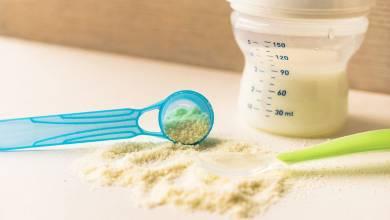
Let’s paint a picture. Your child is just casually eating the food you prepared. Suddenly, you notice a little bit of yellow in the baby’s spit-up.
Should you be in a frenzy and call your pediatrician?
Why do spit-ups occur?
You might run into this scenario. If this is the first time, you might need help figuring out what to do. Before anything else, it is best to know why this sort of thing happens in the first place.
When we think of throwing up, this usually has bad connotations, whether it’s what we ate or motion sickness. The idea of whatever your child ate randomly leaving in the form of spit will leave you feeling worried.
However, to the surprise of some of you, spitting up is actually normal. Well, it is normal for the first three months of a baby’s life.
The reason is that this is the first time babies are experiencing what it’s like to eat. Both the stomach and esophagus are still getting used to storing stomach contents (food).
Since this is still new to babies, the contents of their stomachs go back to the esophagus and out of their mouths. This is also what we call gastroesophageal reflux.
If you’re looking for professional Denver newborn photography services, visit this website to capture those precious moments of your little one.
Will it stop?
Okay, you’ve convinced me enough not to worry. But will the reflux go away over time?
This reflux will minimize over time. The muscle needs to get used to the process of digestion. Once that happens, there is no need to think about the next time your baby makes a mess.
While it did say that it is normal for the first three months, it can extend even beyond that. Everyone is different, and some might do it more than others.
Babies stop at around 12 months. They would’ve already gotten used to eating and digesting by this point.
Spit ups or vomit?
So is this different from vomiting? The main difference is that spit-ups aren’t uncomfortable for babies. The flow is relatively easy and natural. They won’t be crying or give signs of discomfort when spitting up.
Vomiting is unnatural and uncomfortable. All you need to check is the child’s comfort when spitting out the contents.
When do spit-ups become a problem?
You might still need clarification on this issue or you’re probably worried whether this is still a problem.
The best thing to do is check how your baby reacts during a spit-up. If it is natural, then you don’t need to worry.
Now, it could be an issue depending on the color of the spit-up. Normal spit-ups are colorless or light yellow. This is the case if your child is spitting up breast milk.
If the color is strong and noticeably bright, then it might be a problem. Colors that you don’t want to see your child spit-ups are dark yellow and green.
But this becomes very dangerous if your child is spitting-up bile.
What if it becomes too frequent?
If you notice that the spit-ups are happening more frequently than usual, here are some things you can do to mitigate it. It is also all about the level of comfort your child is experiencing when spitting up. Vomit and GERD (gastroesophageal reflux disease) are not comfortable experiences. These will usually have your child experiencing discomfort and difficulty in throwing up.
Gastroesophageal Reflux Disease (GERD)
While GER is normal, GERD is not.
GERD is much more frequent and much more discomforting.
Common symptoms of GERD, besides excessive spitting up, are frequent coughing and wheezing. Babies may also show signs of refusing to eat. They can also have difficulty eating and can experience choking.
Other signs of irregular spit-ups?
No weight gain
The spit-up could be an issue if your child is not gaining weight. This could mean that the food being spat out is more than what your child is taking in.
It is much worse if your child is losing weight at a fast rate.
Irritable and crying
The experience of extreme spit-ups is discomforting and can cause your child more pain.
If they feel much more irritable and cry more often, this could result in discomfort.
Presence of blood
Should there be any presence of blood in what your child is spitting-up, then it is best to send them to the doctor.
Are there ways to mitigate spitting up?
Whether it is regular but overly frequent spit-up or much more discomforting vomit/GERD, there are ways you can mitigate the number of times your child is spitting up.
Don’t overfeed
You could be feeding your child a bit too much. Babies don’t need to eat that much in a day. As for the amount, they are usually served in small quantities. They have small stomachs and are not used to digestion yet.
Eating larger quantities of food might take a while for them. As much as possible, don’t go over the intended amount of food so as to keep the spit-ups less frequent.
Babies will also give signs that they are full. Pay attention to these things, although they will usually show those signs if they feel they are being overfed.
Burping
Burping is another way to regulate the spit-ups. Babies need to let out something. This can also come in the form of gas.
You don’t need to burp your baby all the time. It usually comes out naturally, just like the spit-ups. Only do this if your child is experiencing discomfort after eating.
Have them lay down on your lap and gently pat their backs until they burp. You can also have them rest on your shoulder so they won’t make much of a mess.
Positioning
Keeping them upright after eating will help regulate the food going down their stomach.
Consult your doctor
If symptoms persist, it is best to seek medical help and consult your doctor.
Conclusion
Spitting up is a common part of your child’s digestive development. It should take them some time, but once they are used to it, it will occur less frequently.
What is important is to know whether how they spit up is considered normal or if it is something much more concerning.






